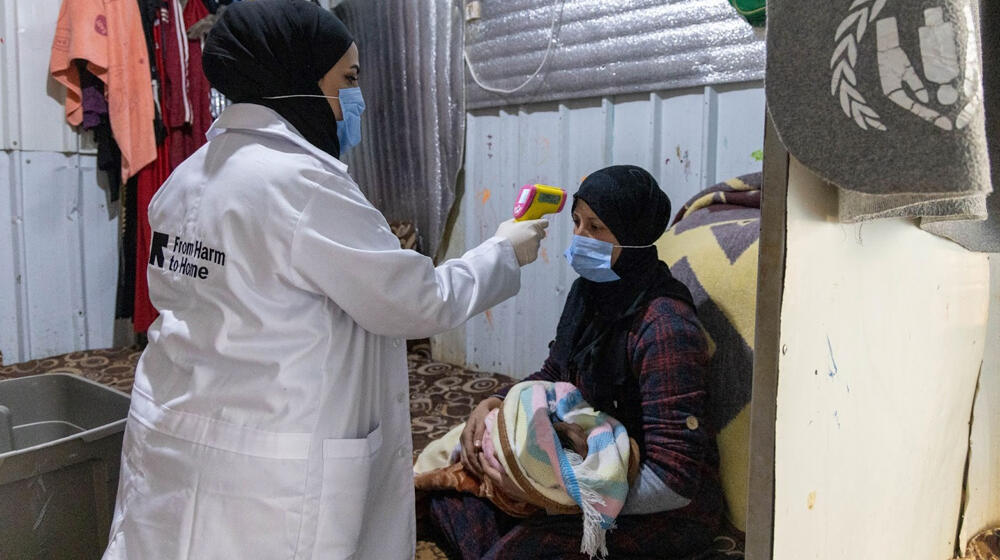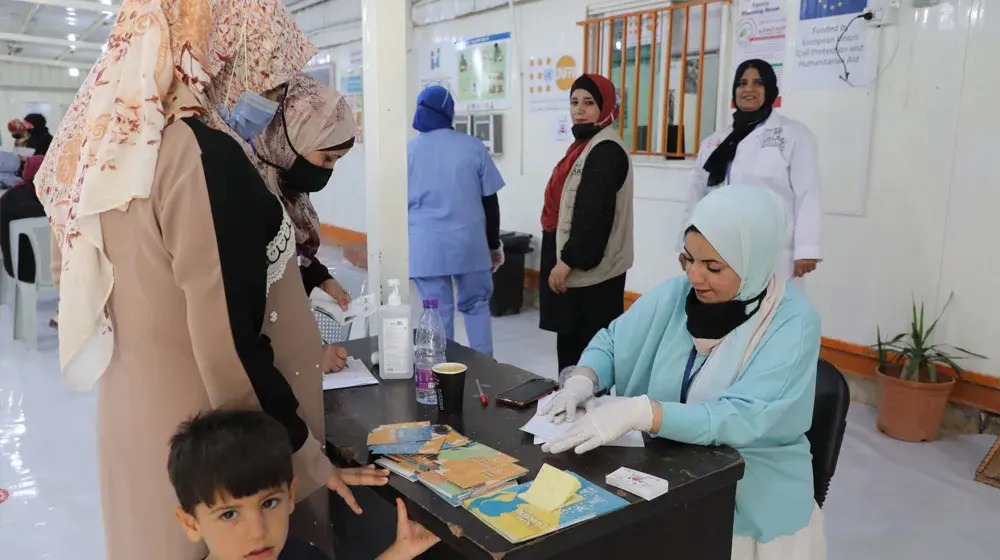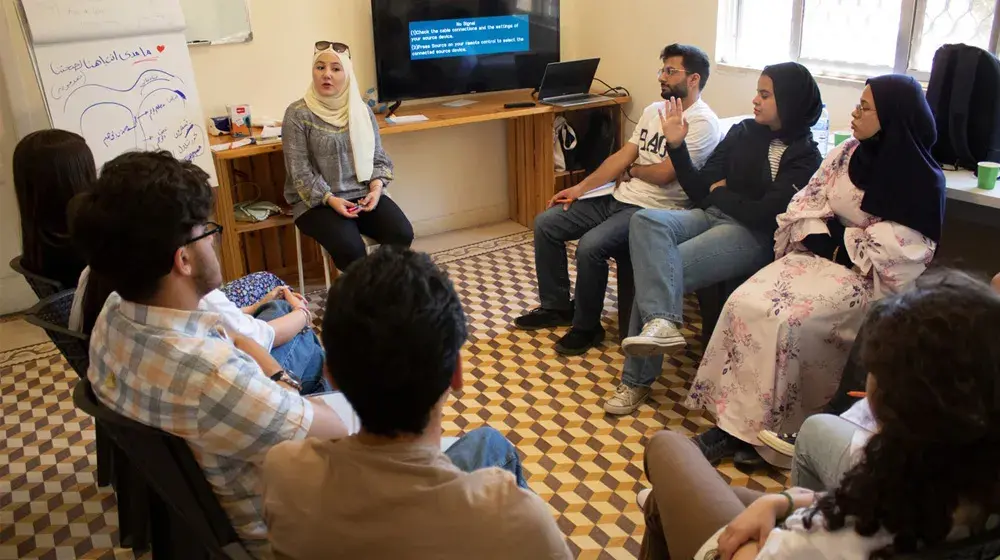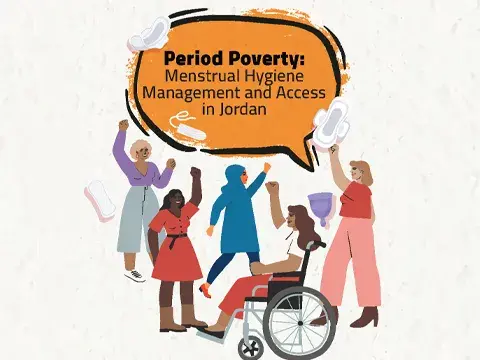UNFPA Jordan in cooperation with the International Rescue Committee (IRC) has been providing sexual and reproductive health services to women in Azraq since 2017. As a midwife, Lara speaks about adapting sexual and reproductive health services to cope with the challenges faced by women in the camp.
"I am passionate about my work and proud to be able to help people here at the camp," says Lara. She works at the IRC's health clinic in Azraq camp, located some 90 kilometers from the Syrian border and currently home to more than 43,000 Syrian refugees.
During her nearly five years as a midwife in Azraq, Lara noticed that women in the camp often lack the necessary support, especially during the postnatal period. "When women get pregnant in the camp, they have to seek healthcare, deliver the baby, and take care of their children all at once," says Lara.
In 2021, the IRC through UNFPA’s support provided 50,000 antenatal, postnatal, and family planning services to women and girls. Among other things, sexual and reproductive health care providers conducted extensive counseling with their patients concerning family planning, antenatal care, postnatal care, danger signs during pregnancy, and sexually transmitted diseases.
Due to the weather conditions in the camp as well as the difficulties mothers face in carrying their children to and from the clinic, the IRC health team in Azraq noticed a decrease in the number of people requesting postnatal care services. In response, I proposed that we conduct postnatal care consultations in new mothers' homes. I began taking the necessary equipment with me to visit the women in their caravans and provide postnatal care and family planning services in one village as a trial
Said Lara.
Amani, 32, who is raising her seven children in the Azraq camp in Jordan, said: “While pregnant, I regularly visited the IRC clinic for regular checkups. However, I was unable to visit the clinic for postnatal care when I gave birth." Her family fled Dara'a to find safety there six years ago. "I was having a hard time going to the clinic and leaving my children at home. Lara has visited me three times since I gave birth five weeks ago," Amani said.
Today, the IRC's health team in the camp conducts home visits in all camp villages. "We started the initiative two months ago. In the first month, we made 116 home visits," Lara added. "I saw the importance of these home visits during the winter and felt proud to spare moms walking in these harsh weather conditions."





